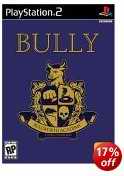| |||||||||||||||
|
| 12th December | Labelled as Repressive
Based on an article from the Free Speech Coalition A federal spending bill recently submitted to Congress includes an added provision aimed at regulating porn websites. |
| 28th December | Update: Offensive Politics
From AdultFYI Tucked away in a spending bill pending in Congress is language the porn industry finds offensive. There is a little-noticed provision that would require Web sites that feature "sexually explicit" content to contain special labels.
|
| 20th December | Indecent Enforcement ... |
|
| 23rd December | Judges have Strong Words ... |
|
| 14th December | Morals Tax
Based on an article from the Free Speech Coalition In what appears to be a growing legislative trend to regulate brick-and-mortar adult stores, a lawmaker in Kansas has said he plans to introduce a bill
that would require adult-oriented businesses to apply for an occupation license and pay a special tax. |
| 12th December | Advertising Repression
From X Biz The lawmakers who fought to limit the visibility and impact of the pornography industry in their state by drafting legislation that would ban sexually suggestive billboards along state
highways have returned to the drawing board four months after a federal appeals court determined the bill was unconstitutional. |
| 11th December | Ray Guhn Defence
From AdultFYI The December/January issue of Giant magazine has an article on the Ray Guhn case, calling it
a landmark one over pornography, obscenity and prostitution in Pensacola, Florida.
|
| 9th December | Stop the Online Exploitation of
Our Rights
From CNET News Millions of commercial Web sites and personal blogs would be required to report illegal images or videos posted by their users or pay fines of up to $300,000, if a new proposal in the U.S. Senate came into law. |
| 8th December | Huffing
From Azcentral Two
drug abuse prevention groups are calling on the video-sharing Web site YouTube to remove dozens of videos that show people getting high by "huffing," inhaling chemicals such as air fresheners, computer cleaning sprays and helium. |
| 7th December | A Community of Faith
Based on an article from X Biz A tiny Chicago suburb has blocked Comcast cable’s on-demand signal citing concerns that the citizens of the town will use the service to watch adult content. According to South Holland resident Lisa Kozlowski, the town’s decision to block the on-demand signal smacks of censorship. When she confronted town officials about the blocked signal, they said: You can’t watch porn in South Holland. Town officials cited a franchise agreement the community signed with a former cable company in the 1990s that granted the cable operator the right to provide service in the area. In keeping with the prevailing community standards and the long established values associated with our motto of faith, family and future, the village has franchise agreements that protect these standards and values, a nutter official said in a statement. Illinois American Civil Liberties Union legal director Harvey Grossman said the franchise agreement isn’t the final word on the matter: The contract can't waive the Constitution. This kind of censorship, and it clearly is censorship, raises very serious constitutional issues. Comcast has said it will comply with the terms of the franchise agreement. However, officials from the company said that they would prefer to offer the service to the town and let users make their own decisions regarding adult content. |
| 5th December | The Hills Had Hands
From AVN The US censors, the MPAA have apparently wreaked their havoc down upon the new poster for The Hills Have Eyes 2 . |
| 3rd December | Faith in Declining Freedom
From AVN Former Republican House Speaker Newt Gingrich told a banquet crowd that restrictions on freedom of speech may be needed to reduce terrorists’ ability to use the Internet and free speech
to recruit members and communicate their message. |
| 2nd December | Update:
Shit Regulators
From Buzzle US TV networks and the TV regulator, the FCC, have gone to court to determine what can and cannot be seen and heard on American televisions. |
| 30th November | Jackson has 'Words' with Comedian
From First Coast News Jesse Jackson is calling on the entertainment industry to stop using the racial slur, "nigger', that Michael Richards used against hecklers in a Los Angeles comedy club. |
| 26th November | Wal-Mart Seduced by Nutters
Wal-Mart has stopped selling a sex-education book after protests from nutters that the book promotes lesbianism. Joseph Ben-Ami, executive director of the Institute for
Canadian Values, called the book irresponsible and obscene . He said that the book includes statements such as, A lot of parents are homophobic, and so are their children until they get minds of their own. |
| 24th November | FCC Fuck You
While some Hollywood companies showed their displeasure at the FCC’s indecency efforts on “FCC FU” coffee mugs and T-shirts, one media organization is upping the ante with mugs and T-shirts featuring slogans created by some top industry
talent, Broadcasting & Cable magazine reported. |
| 22nd November | Common Carriers Carry the Day
|
| 21st November | Americans Love Junk
Food Almost as Much as their Flag
|
| 25th October updated to 21st November | Extreme
Protection
Free speech advocates and Web site
operators argued in federal court Monday that an anti-porn law is flawed and hinders free speech. |
| 15th November | Update:
The Explicit 1%
About 1% of Web sites
indexed by Google and Microsoft are sexually explicit, according to a U.S. government-commissioned study. |
| 21st November | Update:
Americans Into Copaphilia
A US law designed to prevent children from viewing pornography online would undermine the free speech of millions of adult internet users, opponents of the measure say. |
| 18th November | Censorshit: Dishonorable Discharge
|
| 10th November | F*CK
|
| 10th November | Tortured by Nutters
The debate over the direction of the horror film genre and its societal implications have recently come under heavy scrutiny from hypocritical political pundit and Fox News Analyst Bill O’Reilly. Apparently what O’Reilly and Hirsen want is a trip back to the days of the Production Censorship Code which forbade there to be
any ambiguity between who was good and who was bad and which forced the bad guy to be caught and punished at film’s end. |
| 9th November | Taliban Rule in Virginia Two owners of the
Virginia sex shop Pheromoans were indicted on three misdemeanor charges of violating the state’s obscenity laws. Each charge carries a maximum penalty of 12 months in jail and a $2,500 fine. |
| 31st October | Students Easily Offended The University of Minnesota's theater arts department has scheduled a controversial play for next spring. A work that's being labeled blasphemous and anti-Catholic by students on that campus. Titled The Pope and the Witch , it
features a heroin-addicted pontiff who suffers a "crucifixion stroke" and is treated by, among others, a witch dressed in a nun's habit, who acts as an assisting nurse. |
| 1st September updated to 29th October |
Sniping at Channel 4
A hard-hitting British TV drama that shows President Bush assassinated by a terrorist sniper sparked predictable outrage from nutters and Americans |
| 13th September | Update: Death Threats
Death of a President has now secured a distribution deal for the US. The film was sold for $1 million to Newmarket Films. The movie’s subject matter has raised protests from conservatives in the US, and director Gabriel Range says he has received five or six death threats. |
| 29th October | Update: A
Killing at the Box Office
Death of a President has opened across the US but it is
noticeable that there's no scheduled opening date for Dallas, hometown of Bush and scene of a previous assassination. This critic's assessment: Death of a President is well made and well acted, and the documentary verisimilitude is eerie. The film presents President Bush as a sympathetic figure, beloved by his staff. But it also crosses a line never before drawn, it makes for queasy viewing, and the fetishistic attention to detail is creepy. |
| 16th October | Heavy Handed Or What?
Upset by the war in Iraq, Julia Wilson vented her
frustrations with President Bush last spring on her Web page on MySpace.com. She posted a picture of the president, scrawled "Kill Bush" across the top and drew a dagger stabbing his outstretched hand. She later replaced her page on the
social-networking site after learning in her eighth-grade history class that such threats are a federal offense. |
| 12th September updated to 17th October | Home of
the Utterly Depraved Based on an article from The Register
|
| 12th October | Update: The Only Bullies are the Nutters Based on an article from the Washington Post
Fighting forms
a large part of the title but the developers said it was displayed like a cartoon or Popeye fight : There's no blood at all in the game. There's no physical damage. Nobody dies in the game. There are no guns. |
| 17th October | Update: The Nutter Who Cried Wolf
Based on an article from Boom Town
|
|
| |||||||||
| |||||||||
| ||||||||||
 Court hears plea for decent regulation of US TV
Court hears plea for decent regulation of US TV  Smut obsessed politicians look to tax as a weapon
Smut obsessed politicians look to tax as a weapon 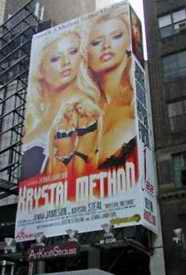 Another attempt at controlling billboards for adult Business
Another attempt at controlling billboards for adult Business 
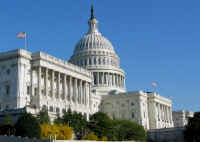 Repression in the name of child protection
Repression in the name of child protection  Chicago Nutters block adult cable TV
Chicago Nutters block adult cable TV 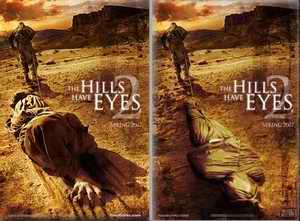 Poster censored for Hills Have Eyes 2
Poster censored for Hills Have Eyes 2  Newt Gingrich impossibly wants more faith and less hate
Newt Gingrich impossibly wants more faith and less hate  Calling for the eradication of the word 'nigger'
Calling for the eradication of the word 'nigger' 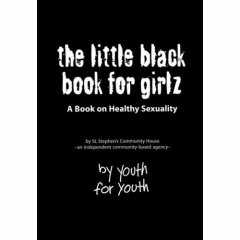
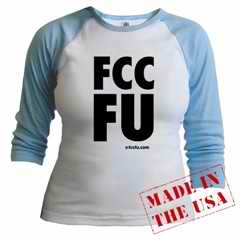 From
From  From the
From the 
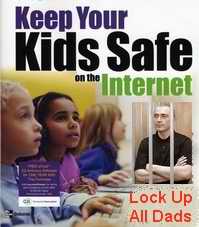 From
From 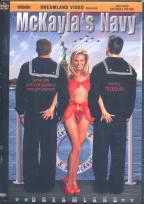 From
From 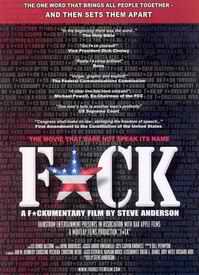 From Dawgnet
From Dawgnet 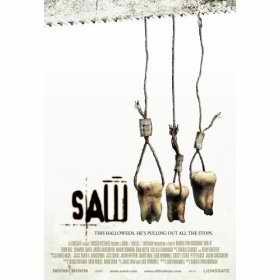
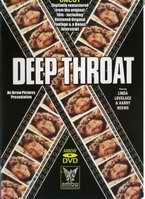 From
From 
 Based on an article from
Based on an article from 